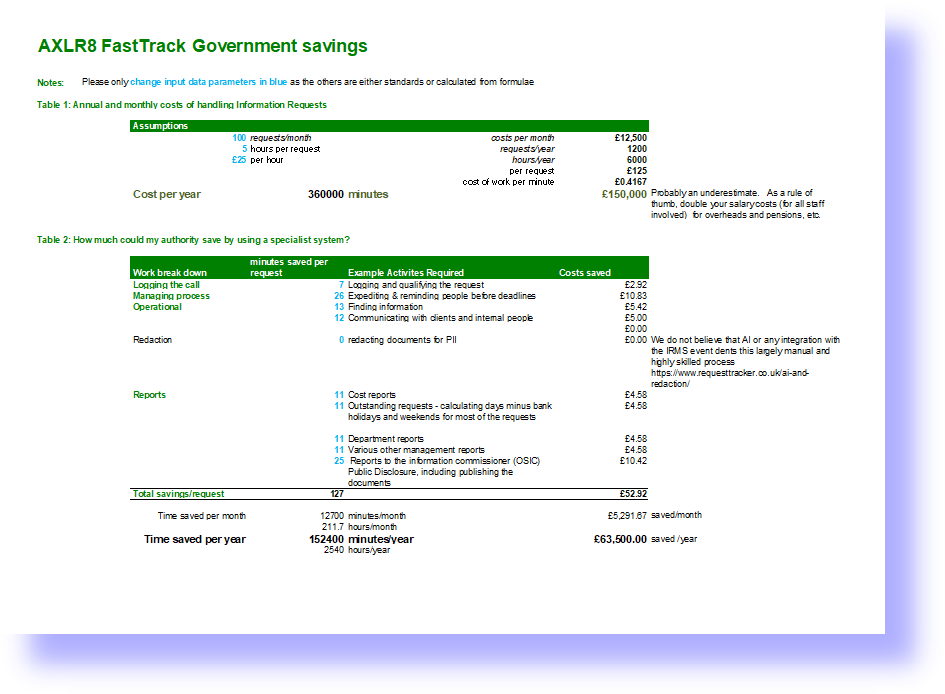Most would agree with the following for request handling systems the productivity improvements obtainable will depend upon three things.
- The number of requests (SARS, complaints, enquiries, fault reports, etc.)
- The time saved answering them
- The cost of labour/hour
All vary and are changing over time. However, it is quite easy to make some simple assumptions and check them against norms.
Increasing volume and complexity
There is a general increase number and complexity of information requests and complaints. The detail and care overhead (making sure all details in your response are compliant and satisfactory to avoid even more work) grows every year.
Automation
What features automate the processes we are doing manually now? There are areas (e.g. redaction) where attempts to replace the judgement of an experienced manager are disappointing. However, there are many areas where automated and semi-automated correspondence, timed automatic chasers and alerts and robot workflow can really help. Also, the discipline and best practice that stem from using a specialist system are most important. Audit trail, all documents and correspondence in one place, automation that launches from known dates are important. Reports at the click of a button instead of wasting time on spreadsheets save time (and the well documented problems of spreadsheets). Also Retention Automation can drop data that it is no longer reasonable to hold. This is a complex manual task with different periods depending upon the type an status of the Information Request. Automation can eliminate this time consuming vigilance task!
Will I save money?
This ROI spreadsheet may help you assess whether you should buy a system to save money for your business. If the system costs three “bananas” over three years and you are saving a banana every month because of the productivity increase, then invest. If a “banana” is, say £10,000 then you are wasting £10,000 per month by NOT implementing a system and sticking with spreadsheets. However, if you spend £30,000 in times where cash is tight and the sums do not add up, then you will not be popular! Luckily, smart managers do an RoI calculation and involve finance and their line manager as well as colleagues in their team to agree the assumptions and outcomes. This is necessary because, even at the £25 / hour level of staff costs, the time savings can be surprising.
In the attached spreadsheet, We have taken an organisation that answers 100 requests a month not including a larger number they reject (spam, duplicates, etc.) The time saved at diferent stages of the process adds up to a surprising number of hours a year and hence tens of thousands of pounds wasted where a system is not automating reports and correspondence at the very least.

In the example above, we have plugged in the numbers 100 requests a month and a very realistic 127 minutes saved per response by using a really good system. The figure generally used for labour costs is a little low but we used £25/ hour. This probably does not takeint account public sector overheads. Feel free to plug your own numbers in.
If you have any comments or feel we have missed something, please call us because we would like to use accepted common sense numbers.
